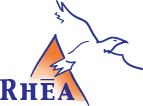
Rhea’s team has decades of experience providing engineering, geotechnical, and environmental support for roads and bridges.
Transportation
Our contributions to transportation projects include:
Topographic Surveying
Road + Retaining Wall Design Review
Geotechnical Borings, Sampling, + Analysis
Archaeological + Historic Evaluation
Environmental Site Assessments
Wetlands Delineation
Environmental Permitting
Section 4(f) Evaluations
Geographic Information Systems (GIS) Support
From roads to bridges to runways, Rhea’s technical expertise can get your transportation project off the ground. We work closely with our transportation clients every step of the way to make sure that everything they build is built to last.
When a project requires precise topographic mapping, our crew of professional surveyors has it covered. Their high-resolution maps are the foundation for high-quality planning and designs.
Rhea’s team of civil and geotechnical engineers provide design support and analysis for bridges, roads, runways, and the stormwater infrastructure that goes along with them.
Our environmental scientists and archaeologists conduct a full range of environmental and cultural resources investigations to identify all potential challenges within the project area. We can help our clients navigate their permitting requirements and ensure that their projects stay on time, under budget, and in compliance with all federal, state, and local regulations.
Clover Lane Bridge Replacement Geotechnical Investigation + Design
Rhea conducted geotechnical analyses and foundation designs for the complete replacement of a bridge and culvert.
Geotechnical Investigation for Multimodal Parking and Transportation Facility
Rhea conducted a geotechnical evaluation of soft soils and bedrock in support of the construction of a new multimodal parking facility at a PA State Park.
Road Connectors in a High Traffic Area
Rhea is providing surveying, environmental, geotechnical, and archaeological support for a major road connector project in Moon, Pennsylvania.
GIS Digitization and Conversion for Large Transportation Dataset
Rhea provided GIS services for D.C. area airports and transportation services, including file digitization, geospatial data format conversion, and the production of high-quality, accurate geodatabases.
PA Turnpike Stormwater Evaluation + Improvements
Rhea was tasked with identifying drainage problems and solutions at the Pennsylvania Turnpike Commission Homewood Maintenance Facility related to stormwater and vehicle wash water.
Geotechnical Investigation + Design for Barkley Bridge
Due to deterioration of the existing three-barrel crossing and degradation of the road surface, a complete design and construction overhaul was necessary to create safe access for vehicular and pedestrian traffic.
Geotechnical Investigation + Design for Burkey Bridge
Rhea was contracted to complete the geotechnical subsurface investigation and analysis, state agency coordination, geotechnical drilling oversight, and foundation design for a replacement bridge.
Wetland + Stream Investigation for Connector Road Construction
Competent, efficient, and accurate field work and identification of environmental concerns by Rhea personnel allowed site development activities to be carried out in a safe and environmentally-sound manner.
PennDOT Subsurface Utility Engineering Investigations
Rhea’s services fill a gap left by conventional utility surveys, which do not account for historical features. In this project Rhea mapped numerous features that were not mapped with One-Call types of surveying.
Transportation Authority Phase II Environmental Site Assessment
Rhea successfully oversaw the advancement of 20 soil boring and the installation of 10 temporary monitoring wells using direct-push technology to determine if site contamination existed at a potential new transportation facility site.










